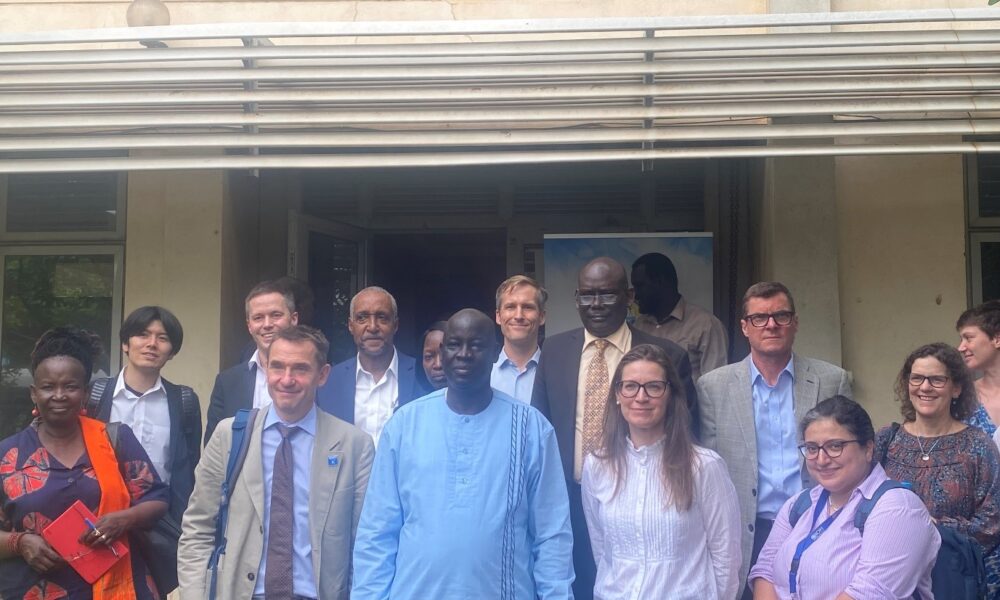By Gladys Fred Kole
Public awareness on land ownership and management are vital, National Minister of Lands, Housing, and Urban Development, has said.
Minister, Michael Chiangjiek stressed during a meeting with partners that communities need to be enlightened to address land disputes.
“If you solve the land issue, in my view, you have solved half of the problems in this country, especially in the areas of conflict. Land is one of the problems in this country, and it triggers so many conflicts,” said Michael.
He highlighted the alarming disputes between the pastoralists and the farming communities as being the core problem at the center of the land issue.
“This has been the issue people are fighting over and over again in this country because farmers sometimes don’t have cattle, and these pastoralists just come in with their cattle,” Michael stated.
According to him, they are very mindful that with the policy framework, it will still create problems, as they have to do it carefully so that everybody sees him or herself in there.
For his part, Robert Ladu Lwoki, chairperson of the land commission, said the land policy already in parliament is not enough.
He underscored the need to raise awareness among the people so that they realize that the riches they have need to be protected by proper laws so that other irregularities can be kept away.
“Raising awareness among our people is important because if you tell them that a wounded wildlife is owned by the government but the land is yours, they say no, this wildlife is ours; we have the right to poach the way we want,” Lwoki exemplified.
He stressed that they need to sensitize the population by looking out for these different groups in terms of the land tenure system, security, and how the livelihoods of the people are taken care of.
“So, what do you say if the land is owned by the communities? They will think now that this is their land, and they can’t give for the government to build roads, railway lines, etc.,” Lwoki exclaimed.
He emphasized the need for a land policy to take care of all aspects of ownership and management, adding that the government has the power to expropriate land only for public interest but not individual interest.
“As a new nation, you know, we also learned other tricks on how to become corrupt and get riches, but this land policy is trying to cover all these problems and irregularities,” he noted.
The land commission boss reiterated that they have to develop not only the land policy but also the framework so that the communities do not think now that this is their land and they are free to do anything with it.
“The 64 tribes, if each one goes away with a piece of land, then nothing will be left for the state. These are things that we really have to take care of because our peace depends on how we handle our land and natural resources,” he lamented.
Furthermore, Lwoki emphasized that the country is very rich, but they can only realize these riches by putting good legal frameworks and policies in place.
Meanwhile, Stephen Ray, a member of the advisory group to the secretary general of the United Nations on issues of peace building and also the Ambassador of Switzerland to Zimbabwe, said that fixing land-related issues in a country fixes every situation.
“If you fix the land issues, you fix the country, basically. You allow peaceful investment and the security of land owners or tenants; I think it is commendable to think that you’re basically starting with these very issues,” Ray expressed.
“I can expect that there are as many friends of the process as there are enemies because if you fix the land, you fix so many things.” Ray added
Officials from the Ministry of Lands, Housing, and Urban Development held a meeting with partners, on Tuesday, for insights on efforts and developments in land.




